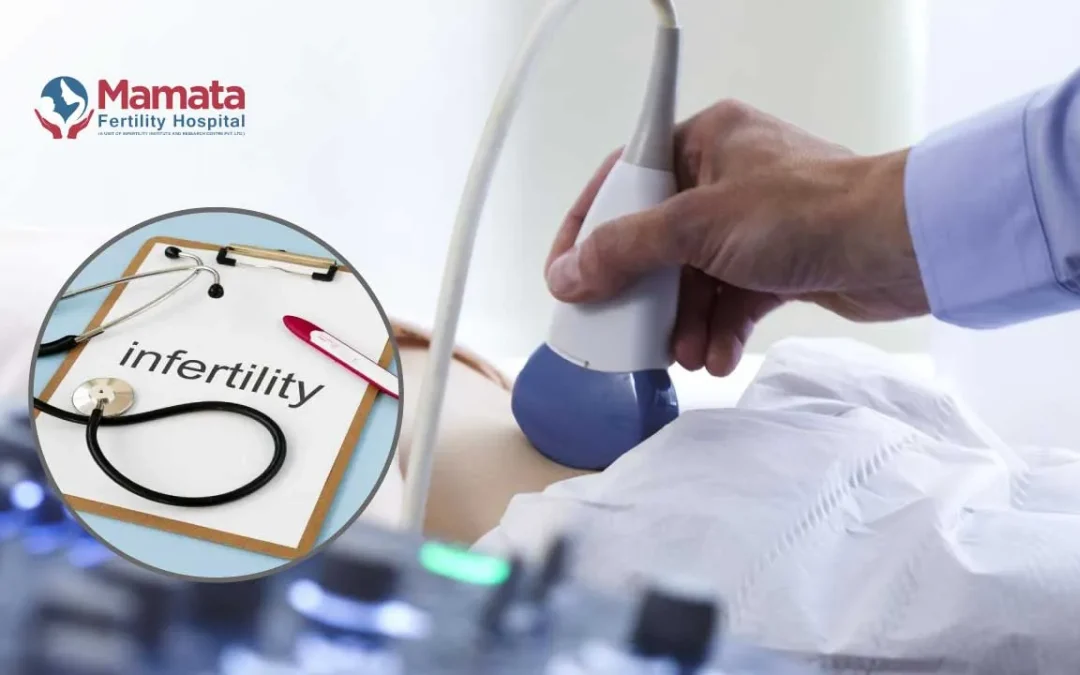Ovarian Cancer
Ovarian cancer develops in the ovaries, which are two small, almond-shaped organs located on each side of the uterus. The ovaries play a critical role in a woman’s reproductive system—they produce eggs each month and release hormones like estrogen and progesterone.
Ovarian cancer happens when cells in the ovaries grow uncontrollably, forming a tumor. If left untreated, these cancer cells can spread to other parts of the body. Think of it like a garden where weeds (cancerous cells) take over and crowd out healthy plants (normal cells). Catching these weeds early makes it easier to manage and treat them.
For Appointments, Please Call:
More On Ovarian Cancer
What is Ovarian Cancer?
Ovarian cancer develops in the ovaries, which are two small, almond-shaped organs located on each side of the uterus. The ovaries play a critical role in a woman’s reproductive system—they produce eggs each month and release hormones like estrogen and progesterone.
Ovarian cancer happens when cells in the ovaries grow uncontrollably, forming a tumor. If left untreated, these cancer cells can spread to other parts of the body. Think of it like a garden where weeds (cancerous cells) take over and crowd out healthy plants (normal cells). Catching these weeds early makes it easier to manage and treat them.
There are three main types of ovarian cancer, depending on where the abnormal cells start:
-
- Epithelial Tumors: Most common and occur on the surface of the ovaries.
- Germ Cell Tumors: Rare and start in egg-producing cells.
- Stromal Tumors: Begin in the tissue that produces hormones.
While ovarian cancer can be serious, advances in treatments and diagnostics mean that many women are living longer, healthier lives.

Causes and Risk Factors
Ovarian cancer doesn’t have one single cause. It’s often the result of a combination of factors. Knowing what may contribute to the disease can help you take preventive steps.
What Causes Ovarian Cancer?
Cancer develops when cells in the body grow and divide in an uncontrolled way. While scientists don’t know exactly why this happens in the ovaries, they do know that specific factors can increase your chances of developing ovarian cancer.
Risk Factors
Some of the known risk factors for ovarian cancer include the following:
-
- Age: Women over 50 are at higher risk, especially after menopause.
- Family History: If close relatives have had ovarian or breast cancer, your risk may be higher due to inherited gene mutations like BRCA1 and BRCA2.
- Genetic Mutations: Beyond BRCA genes, other mutations like Lynch syndrome can increase risk.
- Reproductive History: Women who haven’t had children or had their first child after age 35 may face a higher risk.
- Endometriosis: A condition where tissue similar to the uterine lining grows outside the uterus.
- Hormone Therapy: Long-term use of estrogen hormone therapy after menopause increases the risk slightly.
- Obesity: Women with a higher body mass index (BMI) have a greater risk of developing ovarian cancer.
Note: Having one or more risk factors doesn’t mean you’ll definitely get ovarian cancer. It’s just a signal to stay informed and proactive about your health.
Symptoms and Diagnosis
Ovarian cancer is often called a “silent cancer” because its symptoms can be subtle and mistaken for other common health issues. But knowing the signs is crucial for catching it early.
Symptoms of Ovarian Cancer
-
- Bloating or Swelling: Persistent bloating that doesn’t go away.
- Abdominal Pain: Frequent or long-lasting discomfort in your lower stomach.
- Changes in Appetite: Feeling full quickly when eating.
- Urination Changes: Needing to urinate more frequently.
- Unexplained Weight Loss: Losing weight without trying.
- Fatigue or Weakness: Feeling unusually tired despite resting.
If you experience symptoms for more than two weeks, it’s important to talk to your doctor.
Diagnosis
At Mamata Fertility Hospital, we use the latest tools to accurately diagnose ovarian cancer. Diagnostic steps include:
-
- Pelvic Exam: Allows the doctor to feel for any unusual swells or lumps in your ovaries.
- Ultrasound: Uses sound waves to create a picture of your ovaries, identifying abnormal growths.
- Blood Tests: Helps measure substances like CA-125, a protein that ovarian cancer cells release.
- CT Scan or MRI: Advanced imaging to determine if cancer has spread.
- Biopsy: A sample of tissue is taken and tested to confirm if it’s cancerous.
Early detection is key to better outcomes, so don’t ignore unusual symptoms.
Impact on Health and Daily Life
Ovarian cancer can affect more than just your body—it often impacts your emotions, relationships, and daily activities too.
Physical Impact
If untreated, ovarian cancer can spread to other organs like the liver or lungs. The symptoms and treatment side effects can affect energy levels, digestion, and overall strength.
Emotional Well-being
Learning you have ovarian cancer can feel overwhelming. It’s natural to feel anxious, scared, or even angry. Relationships, family planning, and day-to-day responsibilities can all feel more difficult to manage. Engaging with support groups and mental health professionals can make this burden easier to carry.
Daily Routines
Treatments for ovarian cancer, such as surgery or chemotherapy, may temporarily interfere with your daily life. But with proper planning and support, many women find they can maintain their activities and responsibilities to some degree.
At Mamata Fertility Hospital, we provide not only medical care but emotional and mental health support for all our patients.
Treatment and Management Options
Dealing with ovarian cancer may feel daunting, but effective treatments are available. The best treatment plan depends on the type and stage of cancer, as well as your overall health.
1. Surgery
For most women, the first step is surgically removing the tumor. This might involve:
- Removing one or both ovaries (oophorectomy).
- Hysterectomy to remove the uterus.
- Removal of lymph nodes and nearby tissue if cancer has spread.
2. Chemotherapy
Drugs administered orally or intravenously target and kill cancer cells. This treatment is commonly used after surgery to ensure all cancer cells are eliminated.
3. Targeted Therapy
Advanced medicines attack the specific genetic changes or proteins found in ovarian cancer cells. This approach causes fewer side effects compared to chemo.
4. Immunotherapy
This boosts your immune system’s natural ability to fight cancer cells.
5. Radiation Therapy
Although less common for ovarian cancer, radiation uses focused energy beams to eliminate residual cancer cells.
Your doctor will carefully explain your treatment options and recommend the most effective plan tailored to your needs.
Lifestyle and Dietary Recommendations
Taking care of yourself during and after ovarian cancer treatment is crucial. Here are some tips to improve your quality of life.
Diet and Exercise
-
- Eat a balanced diet rich in fruits, vegetables, whole grains, and lean proteins.
- Stay hydrated by drinking plenty of water each day.
- Engage in light exercises like yoga, walking, or stretching to maintain your energy.
Emotional Self-Care
-
- Connect with friends, family, or support groups for emotional encouragement.
- Express yourself through journaling, art, or other creative outlets.
- Practice mindfulness or meditation to reduce stress and anxiety.
Follow-Up Care
Stay on top of your health with regular doctor visits and medical scans. Early intervention can help manage any recurring issues.
Frequently Asked Questions (FAQs)
1. Can ovarian cancer be prevented?
While you can’t completely prevent ovarian cancer, managing risk factors like obesity and regular screenings can help reduce your chances.
2. Is ovarian cancer curable?
Yes, especially if caught early. Even later stages can often be managed with modern treatments.
3. Should I get tested for BRCA mutations?
If you have a family history of breast or ovarian cancer, genetic testing might be recommended. Talk to your doctor about it.
4. How long does ovarian cancer treatment take?
Treatment duration depends on the type and stage of cancer but can take several months. Your doctor will provide a detailed timeline.
5. Can ovarian cancer affect fertility?
Yes, some treatments may affect your ability to have children. If fertility preservation is important to you, discuss options like egg freezing before treatment begins.
At Mamata Fertility Hospital in Secunderabad, we’re here to walk with you at every step of your ovarian cancer journey. From prevention to advanced treatment options, our dedicated team is committed to providing compassionate, effective care that prioritizes your well-being.
If you have concerns or need support, don’t hesitate to reach out. Together, we can ensure you receive the best possible care for a healthier tomorrow.
Reviewd By

Dr Aarti Deenadayal Tolani
Clinical Director, Scientific In-Charge & Fertility Consultant
MBBS, MS ( OBGYN), FICOG
Expert in Reproductive Endocrinology, Infertility, Advanced Gynaec Ultrasound, and Faculty at Mamata Fertility Hospital.
Blogs and Articles

Can Fluid in Pouch of Douglas Cause Infertility? Causes & Treatment
Fluid in the Pouch of Douglas may affect fertility. Learn its causes, symptoms, and treatment options to improve your chances of conception.

Can Varicocele Cause Infertility?
Home > Blogs > Can Varicocele Cause Infertility?Can Varicocele Cause Infertility? InfertilityMale infertility is a leading concern for couples trying to conceive, and one medical condition that often comes up in discussions about male fertility is varicocele....

Difference Between Primary and Secondary Infertility
Understand the key differences between primary and secondary infertility, their causes, challenges, and treatment options for a successful pregnancy.
RELATED CONDITIONS
- Uterine Cancer
- Cervical Cancer
- Fallopian Tube Cancer
- Endometrial Cancers
- Breast Cancer
- When to Consult Infertility Specialist?

